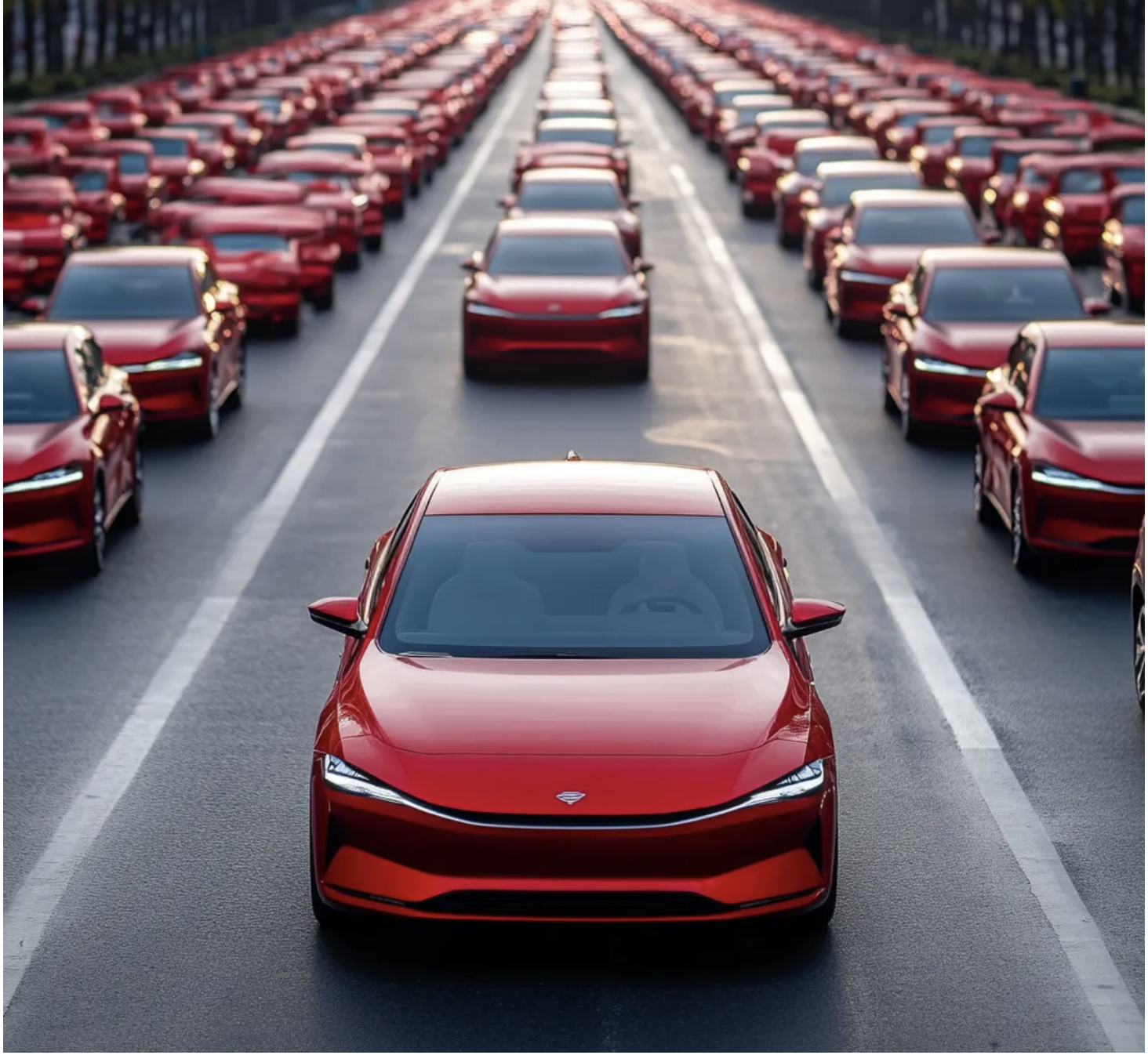Press Release
Securing Strategic Autonomy: €100 billion for EV battery independence
04 February 2025
Brussels, 04 February 2025 – Dunne Insights releases an independent report produced for the European Initiative for Energy Security (EIES): Europe’s Auto & Battery Industry, Revolutionary Change – or Extinction. The brief proposes a European roadmap towards strategic autonomy in the global battery and electric vehicle (EV) industry, recommending €100 billion in targeted battery investments between 2025 and 2035.
Chinese companies – sustained by government-induced, non-market trade and production practices – dominate the global battery production and supply chain, while Europe relies heavily on imports for critical battery components. The brief highlights a critical vulnerability in China’s strategy: its need for global markets to sustain growth. China risks overcapacity and economic stagnation at home without access to these markets. This reliance gives the European Union a strategic advantage in its negotiations with China, offering a unique opportunity to secure access to technology and valuable insights.
Heightened competition in China and from Chinese exports to global markets has forced Volkswagen to do the unthinkable: announce plant closures, and layoffs in Germany. Chinese officials and automakers now have their eyes on Volkswagen factories slated for closure in Germany. Such acquisitions would allow them to circumvent EU tariffs on China-made EVs, and further increase pressure on European OEMs.
“Europe cannot afford to become a vassal state dependent on Chinese imports. Now is the time to act decisively—to build an industry that leads the world, creates jobs, and drives innovation”, said Michael Dunne, Founder and CEO of Dunne Insights, which prepared the report. “But: China respects power and Europe's power is market access.”
Albéric Mongrenier, Executive Director EIES, said: “Europe's goal should be to get as close as possible to energy independence. Advanced energy infrastructure, transport and defence applications will increasingly depend on critical minerals and electricity. A Europe-wide plan to build a homegrown battery industry is central to economic and national security. Until we get there, partnerships with global allies must be preferred, and dependencies on Chinese players carefully monitored, managed and reduced.”
Europe is seven to 10 years behind China in batteries and battery supply chains. China dominates the processing of critical minerals into materials ready for battery cell manufacturing, accounting for 70-90% of global minerals refining. The absence of robust EU policies to incentivise local sourcing and production, akin to the U.S. Inflation Reduction Act, leaves European players vulnerable to global competition.
The brief calls on the EU to:
Leverage access to its market in trade negotiations with China and adopt strategic measures to reduce dependency on Chinese imports, which poses a significant challenge to Europe’s economic and technological independence.
Partner with battery makers – prioritising those with Japanese and Korean companies – for know-how, technology transfers and to achieve scale, leveraging their reliability and strategic alignment with Europe’s interests.
Tightly monitor and regulate partnerships with Chinese companies: Europeans should own 51% or more of each joint venture. Implement robust enforcement mechanisms and phase-in schedules for technology transfers and bolstering value-addition in Europe.
Strengthen and synchronise foreign direct investment screening mechanisms and other investment defence instruments, in keeping with allies.
Implement a tariff schedule that imposes higher tariffs on finished battery cells and components, while keeping tariffs on raw materials, like lithium and graphite, relatively low. Incentives should encourage extraction, processing, refining and manufacturing within Europe or through strategic partners.
Systematically evaluate security threats Chinese connected vehicles pose and manage dangerous dependencies.
About EIES
The European Initiative for Energy Security (EIES) advocates for secure pan-European and national energy policies, dedicated to fostering collaboration between government and industry leaders. EIES seeks to address critical energy challenges and champion comprehensive solutions for the benefit of Europe's energy security, transition, and industrial competitiveness. EIES works with the Energy Security Leadership Council-Europe (ESLC-Europe), composed of retired and active military, political and business figures, to achieve these goals.
About Dunne Insights
Dunne Insights delivers world-class intelligence and advisory services to investors, automakers, suppliers, and technology companies seeking to capitalize on the EV and battery megatrend. With deep industry expertise, we offer actionable insights and strategic guidance to navigate this rapidly evolving market. Dunne Insights is an American LLC with headquarters in San Diego, California.
Contact: Isabelle Dupraz, Deputy Director – idupraz@secureenergy.org


